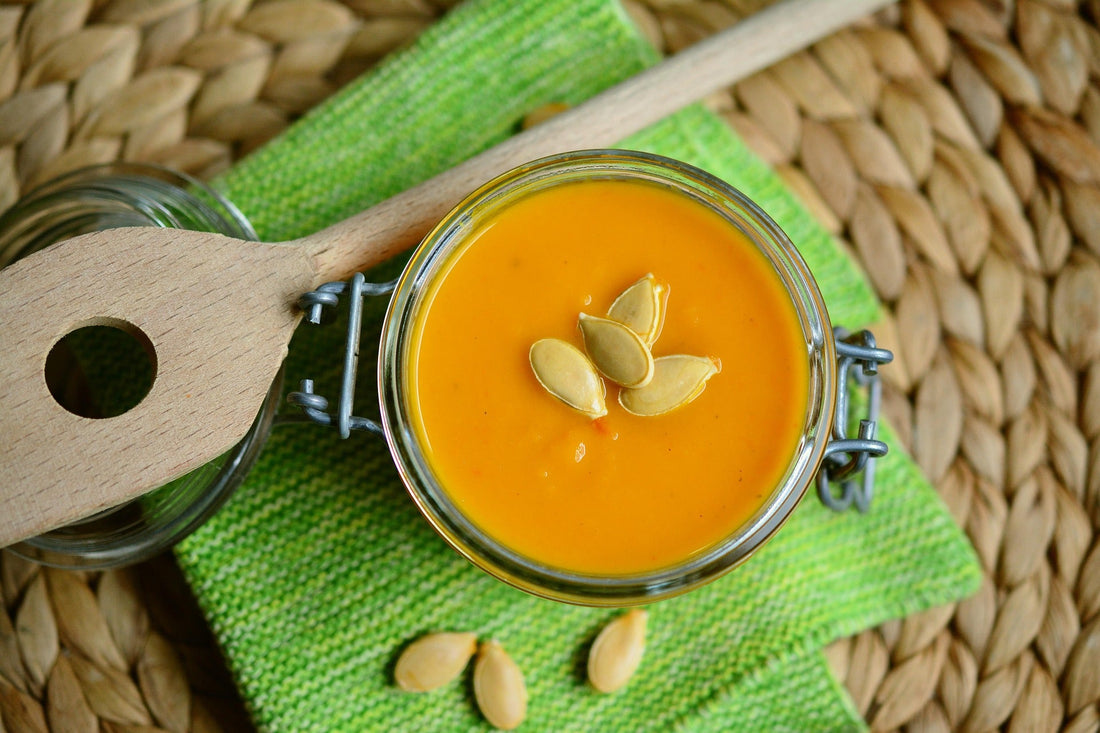
Pumpkin Seeds Benefits: Nutrition, Uses, and Health Guide
Share
Pumpkin seeds, also known as pepitas, are one of the most underrated superfoods. While exotic powders and berries often steal the spotlight, pumpkin seeds are a nutrient powerhouse that can easily be added to your daily diet. In this article, we will explore the nutrition profile of pumpkin seeds, their health benefits, how to use them, and things to keep in mind.
Pumpkin Seeds Nutrition
Pumpkin seeds are among the most nutrient-dense seeds you can eat:
-
Protein: Around 30 grams per 100 grams, making them an excellent plant-based protein source.
-
Healthy fats: High in omega-6 fatty acids and alpha-linolenic acid (ALA), a plant-based omega-3.
-
Minerals: Packed with magnesium, zinc, iron, copper, and manganese, essential for heart, immune, and bone health.
-
Antioxidants: Rich in vitamin E and carotenoids that help fight oxidative stress.
-
Fiber: Supports digestion and a healthy gut microbiome.
Health Benefits of Pumpkin Seeds
-
Heart Health: Magnesium supports blood pressure regulation, while healthy fats help maintain cholesterol balance.
-
Better Sleep: Pumpkin seeds contain tryptophan, an amino acid that promotes serotonin and melatonin production, supporting better sleep.
-
Men’s Health: High zinc levels are traditionally linked to prostate health and fertility.
-
Blood Sugar Control: Studies suggest pumpkin seeds may help improve insulin sensitivity and regulate blood sugar.
-
Anti-Inflammatory Effects: Antioxidants and fatty acids in pumpkin seeds help reduce inflammation and protect cells from damage.
How to Eat Pumpkin Seeds
Pumpkin seeds are versatile and can be enjoyed in many ways:
-
Snack on them roasted, plain, or lightly salted.
-
Sprinkle over salads, soups, or yogurt bowls.
-
Add to homemade granola, laddus, or energy bars.
-
Blend into smoothies for extra protein and minerals.
-
Grind into pumpkin seed butter for a creamy, nutty spread.
Things to Know Before Eating Pumpkin Seeds
-
Calorie-Dense: At about 560 calories per 100 grams, moderation is important.
-
Anti-Nutrients: Pumpkin seeds contain oxalates and phytates, which may reduce mineral absorption. Soaking or roasting helps minimize this.
-
Storage: Due to their fat content, pumpkin seeds can go rancid. Store in airtight containers, preferably refrigerated.
Conclusion
Pumpkin seeds are a simple yet powerful addition to a healthy diet. With their impressive nutrition profile, they provide protein, healthy fats, fiber, minerals, and antioxidants in a small package. Regular consumption may support heart health, better sleep, blood sugar control, and overall wellness. Whether eaten as a snack, added to recipes, or blended into smoothies, pumpkin seeds are an easy way to boost daily nutrition naturally.
If you are looking for a plant-based protein and mineral-rich superfood, pumpkin seeds are one of the best choices to add to your kitchen today.



